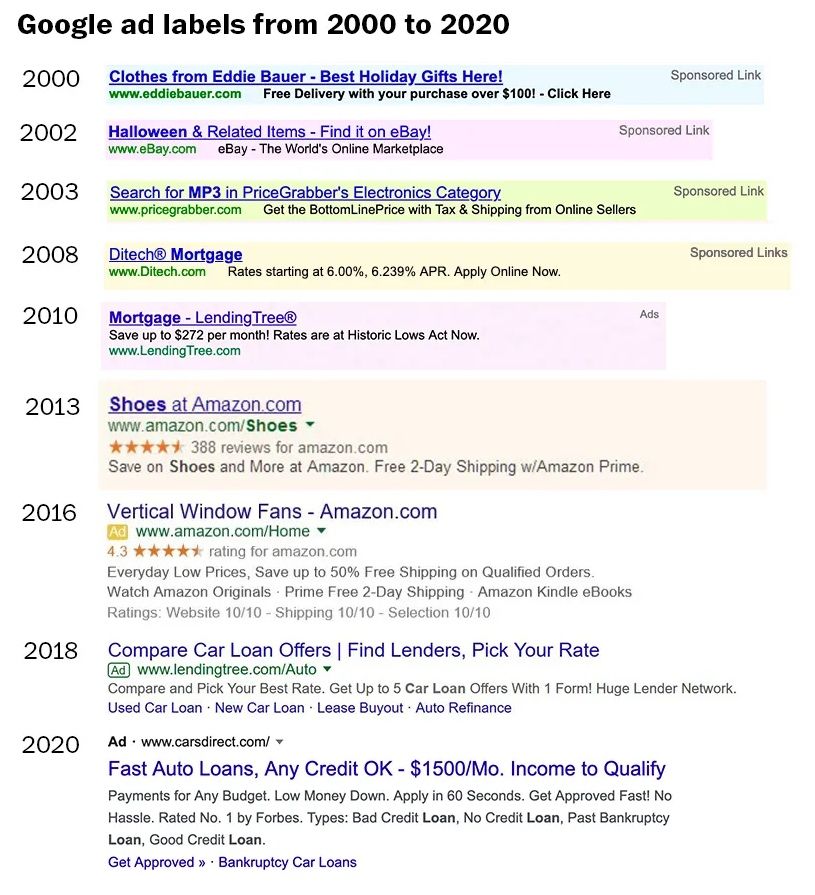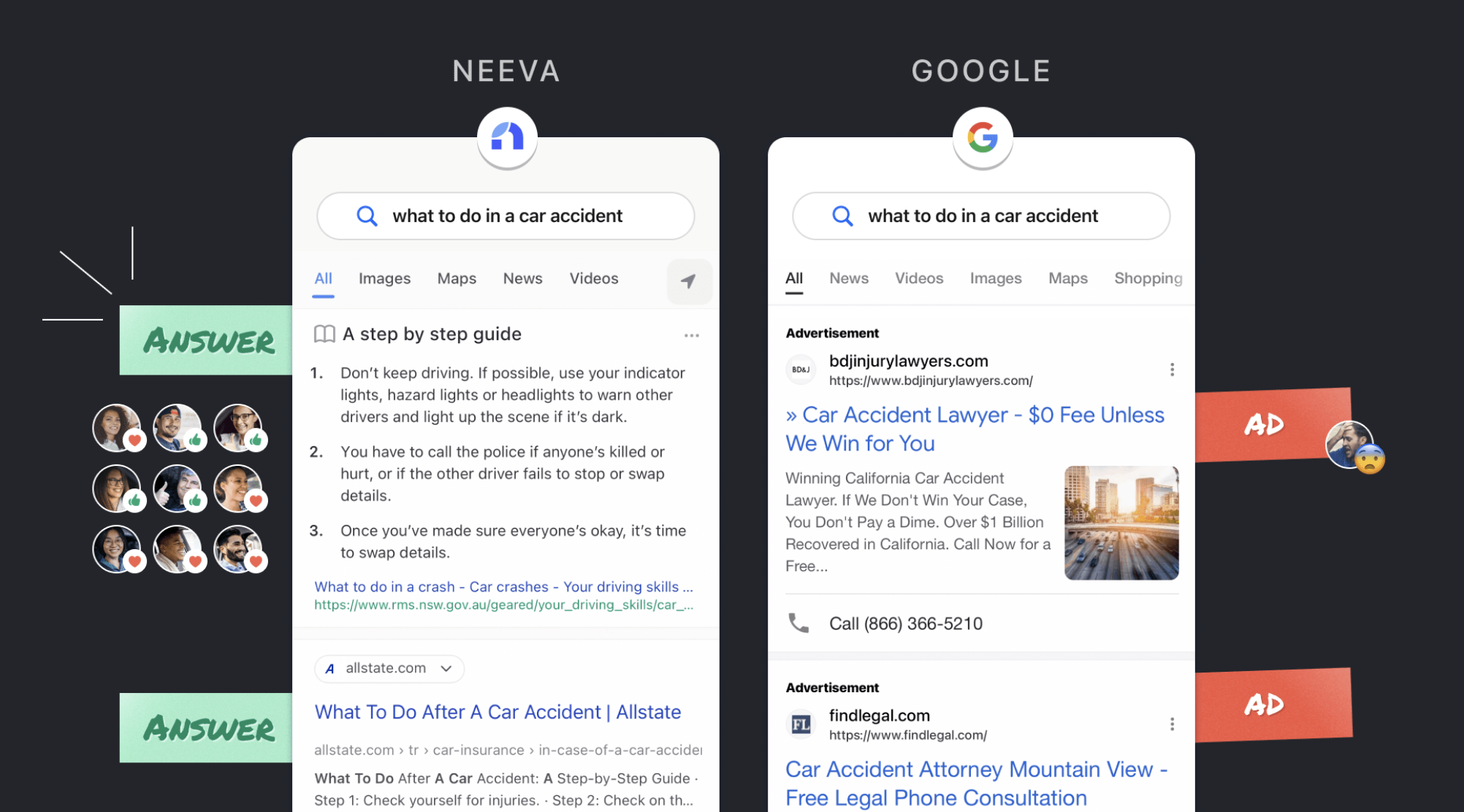
Google has a business model problem
Google has evolved over the past years and it's not always for the sake of its users. The search engine giant seems stuck with its business model, which affects user experience and innovation.
"Don't be evil". That was the mantra of Google for a while. Year after year, the search engine has abandoned its core principles like it dropped its historical mantra in 2018, just before its founders left the company.
In the begging, one of the core principles of Google was to provide results that make a clear distinction between natural results and advertising. This clear distinction has evolved over the years until becoming very subtle. Today, I see many users unable to distinguish natural and sponsored results.

The advertising is very present in Google. You can have nearly two full screens of sponsored results for some mobile searches before having the first natural result, which is the most relevant link in most cases.
These searches involve trademarks, where advertisers can spend much money to steal customers for a specific brand. Strong brands have no choice but to buy advertising on their own brand name to protect it. In France, we even have a prominent brand (Carglass) that explains in its TV ads not to type just the brand name but the full URL of its website to be sure to reach its authentic website. Meaning Google may redirect you to less relevant websites, one of its competitors.
In fact, Google is stuck with its business model. It made much money through advertising for years, and its growth followed Internet adoption. More people joined the Internet and did online searches, and its revenues increased. But the world has changed.
Now, everyone uses a search engine, mainly Google in Europe. It provides massive search volumes to Google but it's becoming more complex for the company to achieve growth. Year after year, the temptation is high for the search giant to increase the volume of advertising on its result pages to increase its revenues. And it may continue for a while.
Google faces new concurrents. As Amazon's search engine became a competitor for product searches over the years, new platforms have emerged. For example, TikTok is now the reference for young people when they need to learn something new. Its quick tutorials became a valuable source of information for many people.
However, there is a more significant danger for Google than the specialized search engine like Amazon or TikTok. It's called ChatGPT.
The rise of this chatbot technology powered by AI is challenging for Google. Instead of providing blue links as results, ChatGPT delivers answers. It can even perform some tasks like summarizing or translating, and it will be able to do more in the future.
Of course, Google could launch a similar product, but providing answers complicates selling advertising significantly. That's why, even if Google has delivered direct explanations in its search results for years, it was very reasonable compared to what it could have done. Google needs some screen space for its sponsored links in its search results.
On the other hand, competitors are eager to embrace ChatGPT. Microsoft invested billions in ChatGPT and is now aggressively integrating the technology into its products, including in Bing, its search engine. It may be the opportunity for Microsoft to change the business model of Bing from advertising to subscription. It could make sense for the company to include Bing in its Office 365 subscription to increase its customer base.
The search engine company Neeva, founded by a Google ex-VP of advertising, is already doing that. Its search engine is available on subscription, without any ads and with a bold claim regarding privacy. Competitors like this Neeva may increase with the availability of ChatGPT technology.

Of course, not everyone will agree to pay a subscription to use a search engine, but these users may see Google becoming a product full of ads and less innovative.
Will we see Google providing subscriptions for its search engine in the future? Will the company increase the advertising pressure? What will be its answer to ChatGPT? Time will tell.